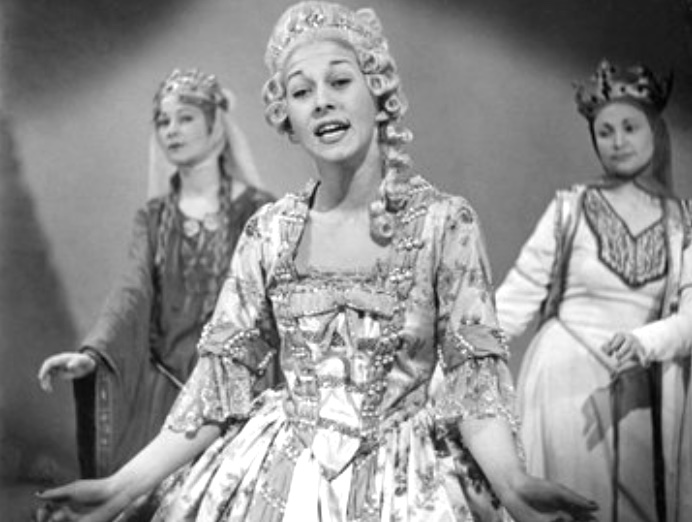OTD in early British television: 7 May 1939

John Wyver writes: On Sunday 7 May 1939 the critic ‘E.H.R.’ contributed his usual television review column to The Observer. It was a fairly run-of-the-mill filing, but it gives us occasion to take a brief look at the state of television criticism 30 months on from the start of the high definition service from Alexandra Palace.
Not that the fledgling medium and emerging artform was being treated with consistency and seriousness. Apart, that is, by the peerless Grace Wyndham Goldie in her weekly columns for The Listener, and the somewhat less sophisticated Sunday musings of ‘E.H.R.’.
I have enthused sufficiently in these posts to have given regular readers a sense of my admiration for the rigour and thoughtfulness of Wyndham Goldie. I will not return to her writing here, although I will doubtless do so in future contributions. And I might note that I am hoping to edit a collection of her columns as my next book project.
Otherwise, the critical constellation for pre-war television included occasional, anonymous columns in The Times, which most focussed on drama, and comments and judgements sliipped into news stories by Marsland Gander for the Daily Telegraph.
Jonah Barrington wrote about the business of television for the Daily Express, although at this point he was still more interested in radio, but what was still, proudly and provincially, the Manchester Guardian largely ignored the medium, which was perhaps understandable given that broadcasts could only be reliably seen in and around London. The Sunday Times too restricted itself to occasional news stories.
The only critic that I know of who was contributing regular columns about a specific strand of television was Jeanette Rutherston, who wrote knowledgeably and with calm passion about ballet and related activities for Dancing Times. Without her notices, our understanding of pre-war television dance would be much the poorer.
And then there was ‘E.H.R.’, whose ‘Television’ column appeared each week as a kind of appendage to Joyce Grenfell’s ‘Broadcasting’ reviews. The new medium was allocated around one-third of the column inches of its decade-or-so older sibling, and ‘E.H.R.’ was squeezed in above the day’s programme listings, where again television was given only a fraction of the area occupied by the National and various Regional titles and timings.
By May 1939, ‘E.H.R.’ had been turning in his copy regularly for a bit over a year. He seems to watch at home, and there is little sense in his writing that he observed programme production at Alexandra Palace or that he had any contacts among the production teams. A kind of innocent viewer, he was broadly supportive and often enthusiastic about the service, and rarely offered harsh words about a transmission.
He began on 7 May with a typical, albeit qualified, endorsement, and from there I have reproduced the column in its entirety:
New high standards were set by several of the programmes last week, but there were also noteworthy disappointments in items to which most viewers must have looked forward with anticipation of pleasure.
The Lawrence of Arabia programme on Sunday evening [an hour-long tribute to ‘T.E.’, who had died four years earlier in May 1935] missed fire because most of those who talked of their friendship with Lawrence or ‘Aircraftsman Shaw’ failed to impress on us any warmth of affection for the great little man whose praises they were supposed to sing.
The performance of Bernard Shaw’s Annajanska was taken at so great a speed that the words were mostly unintelligible. There are one or two producers at Alexandra Palace who still fail to realise that an invisible audience, just as a visible one, requires time to appreciate and react to wit. Few of Bernard Shaw’s words can be ‘thrown away’ without spoiling the show.
Me and My Girl, given direct from the Victoria Palace [which is the subject of a recent post, with Wyndham Goldie’s words], was a triumph from start to finish, except for a few inequalities in the sound reproduction. But why were we not told that the King and Queen were in the theatre?
The third edition of the revue Order to View [above, with Dorothy Dunkels, Patricia Leonard and Diana Lincoln as ‘The Three Queens’, perhaps pre-dating Six by some eight decades] was the best of its kind as a whole that Alexandra Palace has yet done. It was fresh, pretty, and jolly from beginning to end and contained two sketches of great merit.
The new edition of The Mizzen Cross Trees, a review of nautical songs and dances produced by Stephen Thomas, had some moments of great beauty, and was at a high standard throughout. To me there seemed only one fault. It should have ended with one or two of the well-known shanties.
Leave a Reply